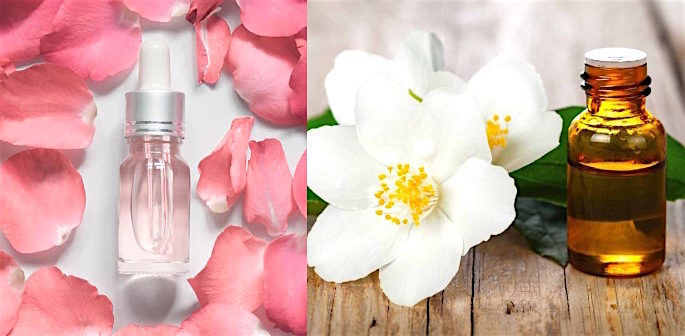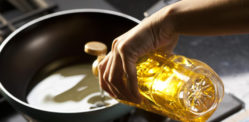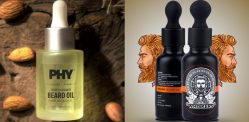The flower petals are submerged into hexane or ethanol solvent.
Indian essential oils are renowned for their amazing health benefits which help combat both physical and mental issues.
India is a country boasting rich colours, tastes and cuisines which are popular across the globe. In fact, India is also well-known for its medicinal practices.
In this instance, Indian essential oils are great for targeting several areas of concern, such as eczema, acne and infections.
Essential oils can also be used in aromatherapy to elevate stress and other mental health worries.
We explore the top five Indian essential oils and their benefits for a natural remedy to many concerns.
Rosewater Essential Oil
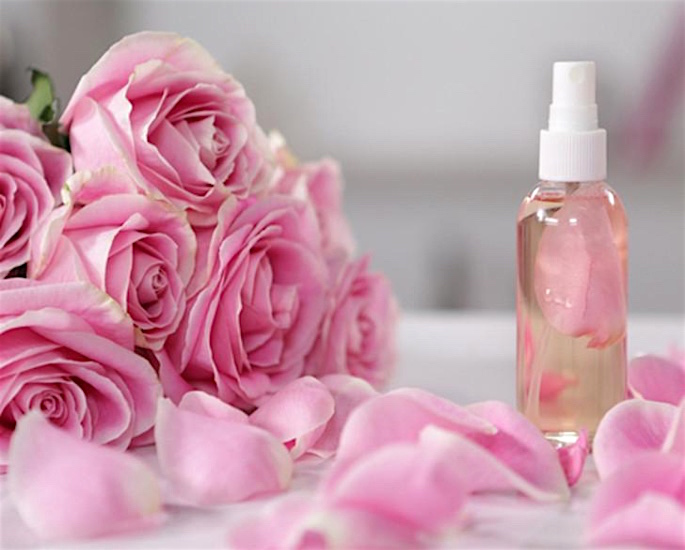
Rosewater is created with steam which is used to distil rose petals. This essential oil has been used for centuries including in the Middle Ages.
It is believed that rosewater originated in what is presently known as Iran and is native to India.
Typically, everyone knows that it is used in making deodorants and soaps due to its warm yet spicy scent.
However, this powerhouse product has countless benefits from beauty to health and even consumption.
One of the most well-known benefits of rosewater is that it helps soothe skin irritation due to the presence of anti-inflammatory properties.
For example, this essential oil can help soothe skin conditions such as rosacea and eczema, reduce redness, improve your complexion, reduce acne and puffiness.
Another skin benefit of rosewater is that it can help heal cuts, scars and burns faster because of its antiseptic and antibacterial properties.
These properties fight off infections which can be caused by burns and cuts on the skin. It can also be used to treat insect bites.
As well as aiding the healing process of the skin, rosewater protects cells from damage.
According to a study, the essential oil contains several powerful antioxidants which have lipid peroxidation inhibitory effects. This means rosewater can protect cells.
Rosewater is also used in beauty products to help reduce signs of ageing such as wrinkles.
Not only that. This essential oil is commonly used as a cleanser or toner. Simply mix 2-3 drops of rosewater to your cleansing and toning products and apply as usual.
Rosewater is also known to elevate your mood and is an effective anti-depressant. Rub a few drops of the oil on your palms and inhale.
Alternatively, you can spritz the essential oil onto your pillow at night. You will wake up feeling relaxed and calm.
While there are potential risks of using this essential oil topically or by ingesting it if you find you are allergic to the substance immediately stop using it.
Jasmine Essential Oil
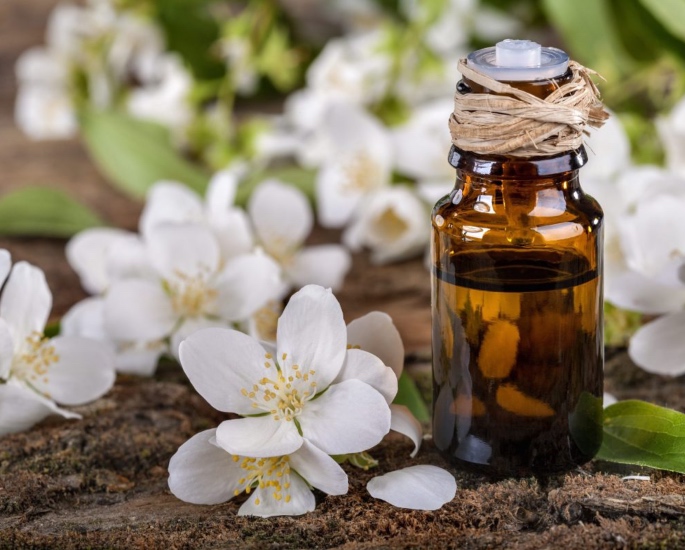
Derived from the white flowers of the jasmine plant or Jasminum Officinale, jasmine essential oil is known as ‘the queen of fragrances.’
This is due to its lovely sweet, deeply rich and romantic aroma which has extensively been used in perfumes.
These include Miss Dior, Yves Saint Laurent’s Opium and Channel’s iconic No. 5.
Having originated from Iran, it can also be found in tropical climates. In India, jasmine flowers are used by women to adorn their hair.
Unlike other essential oils, the process of extracting jasmine oil from jasmine plants does not involve steam distillation.
This is because steam distillation damages the delicate and fragile jasmine flowers.
Instead, solvent extraction is used for the process of jasmine oil extraction.
The flower petals are submerged into hexane or ethanol solvent. This causes the release of the fragrance oil molecules.
This is then distilled to create a wax-type product known as ‘concrete.’ To attain pure jasmine oil, the concrete must be distilled in alcohol.
The uses of jasmine essential oil can be traced back to the Ancient Egyptian era.
Jasmine essential oil contains antidepressants which help reduce depressive symptoms and improving mood.
It is used in aromatherapy massage to achieve mental benefits. This can be achieved by mixing it with a base oil for a massage, in a diffuser or inhale it directly from the bottle.
Jasmine essential oil is also found to have antibacterial elements which fight off several forms of bacteria.
One study found that the oil fought against numerous oral microorganisms. These included E. coli, L. casei and S. mutans.
When diluted, jasmine essential oil can be applied to the skin or used as a rinse to treat or prevent oral infections.
While there is little scientific evidence to support jasmine’s effect as an aphrodisiac it is known to boost positive feelings and energy levels.
This, in turn, could cause an individual to feel romantic and prime someone for sexual intercourse.
Therefore, if you wish to boost your sex life, spritz some jasmine oil onto the bedsheets, place a diffuser in the bedroom or dab some oil on your neck.
Jasmine essential oil is also known to have sedative properties. It has been found that inhaling jasmine essential oil can help with anxiety disorder, irritability, insomnia and palpitations.
Furthermore, this essential oil is also used as a natural remedy to reduce menopause symptoms namely by reducing depression and uplifting your mood.
In fact, a study discovered that aromatherapy massages which used a combination of essential oils including jasmine reduced menopause symptoms.
The study was conducted for a period of eight weeks in which a massage was given once a week.
Jasmine essential oil is generally safe to use and does not usually cause skin irritation. However, because it is derived from a plant, some people may find that they are allergic to it.
Also, if you are pregnant or nursing it is important to consult your doctor before using it.
Pine Essential Oil
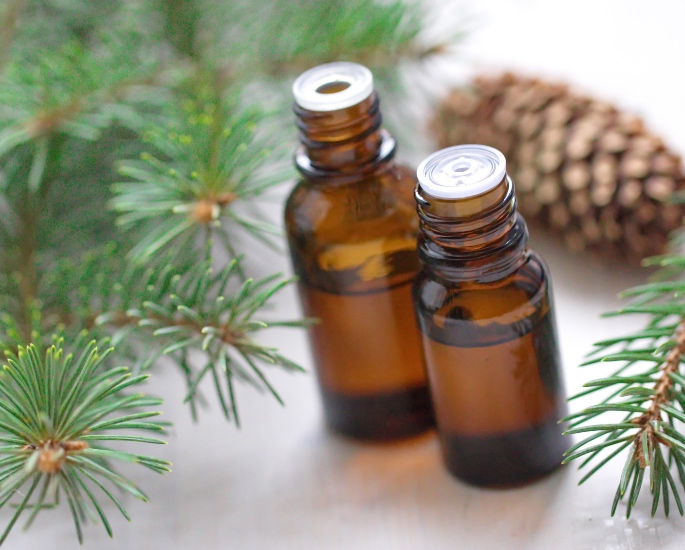
Created from pine trees needles, pine essential oil is another great product which has numerous health benefits.
It can easily be identified for its strong woody scent which is a bonus for people who love strong scents.
Typically, extracts of pine can be found in various products from air fresheners, disinfectants and floor and furniture cleaners to name a few.
While there are many health benefits of pine essential oil, the clinical evidence to support these claims are not definite.
Some of these include using the oil in aromatherapy, an inhaling treatment for illnesses like a common cold or as an antimicrobial.
Like tea tree oil, pine essential oil may be used topically to treat minor skin infections.
Another alleged benefit is the anti-inflammatory effects of the oil. In theory, it should help clear skin conditions like eczema, acne and rosacea.
It is also believed to help ease pains such as arthritis and muscle pain.
However, the above must be consulted with a doctor before using pine essential oil to treat any skin conditions and pains.
Lavender Essential Oil
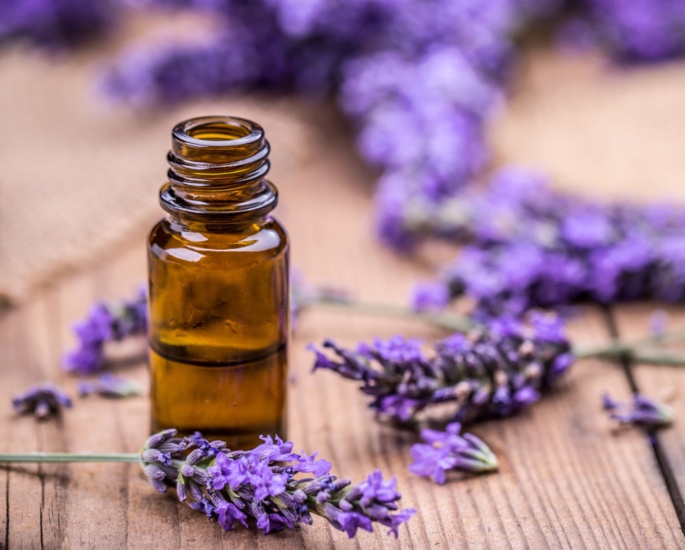
Another popular essential oil is lavender which is extensively used in aromatherapy.
Distilled from Lavandula angustifolia, lavender essential oil has numerous health benefits. These include treating:
- Depression
- Anxiety
- Menstrual cramps
- Nausea
- Eczema
- Insomnia
- Fungal infections
- Allergies
This multipurpose oil helps deal with these problems because it is purported to have several beneficial properties.
These include antifungal, antidepressant, antiseptic, antibacterial, anti-inflammatory, detoxifying, antispasmodic and analgesic properties.
While there is no specific recommended daily allowance for lavender essential oil, it is usually mixed with a carrier oil.
Popularly it is combined with sweet almond oil or jojoba oil. It can then be applied to the skin or poured into a hot bath.
To help with relaxation, lavender essential oil can also be sprinkled onto a piece of cloth to inhale its much-loved scent.
Holy Basil
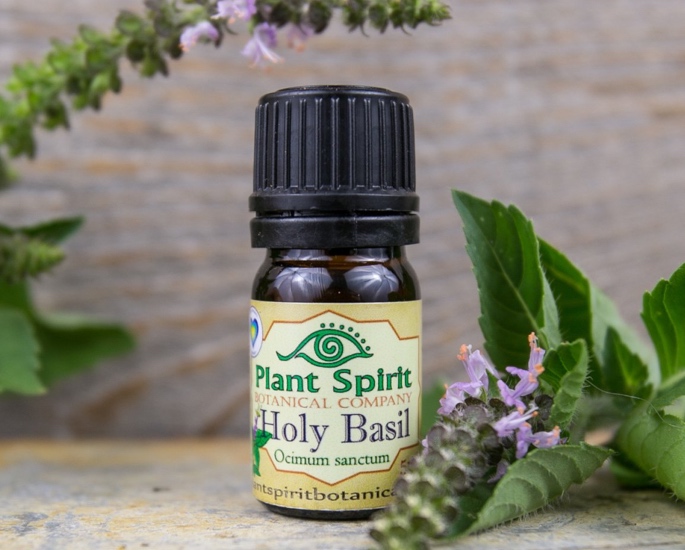
Ocimum tenuiflorum, popularly known as tulsi in Hindi or holy basil is a plant that is identified by its violet flowers and blossoms.
This sacred plant is considered to be one of the most revered medicinal herbs in India where it is known as the ‘Mother Medicine of Nature.’
It is believed this ancient plant can promote a healthy mind and body and can be found planted around various Hindu shrines.
In fact, holy basil has an extensive range of properties which aid good health including:
- Antidiarrheal
- Anti-arthritic
- Anti-diabetic
- Antioxidant
- Antitussive
- Antimicrobial
These properties help combat various health conditions such as flu, diabetes, common cold, fever, headache, earache, upset stomach and many more.
In addition, holy basil is an adaptogenic herb. This means it helps boost the body’s resilience in combatting stressors.
To reap these benefits of this wonder plant it can be consumed by making a tea with the plant.
However, according to Ayurvedic medicine, holy basil it is best consumed whole to ensure the most benefits are ingested.
Undoubtedly, Indian essential oils have countless benefits to ensure your body and mind are in their best form.
However, it is important to note that before using these Indian essentials oils you must consult your doctor particularly if you have a history of allergies.




















































